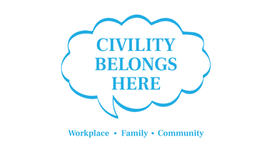- Dec 22, 2016
- 3 min read

We all want those we lead and love to be happy. Every organization that strives to thrive needs happy clients and employees. Ask any parent what they want for their children, and happiness will be at the top of their list.
During the holidays, the desire to feel joyful and cheerful intensifies. Regardless of your religious beliefs, most people run all over town trying to find the perfect gifts and rush to get together with as many family members and friends as humanly possible, all with the hope of making someone happy.
Feeling authentically happy is a good thing. The research from the world of positive psychology proves becoming happier results in better health, increases our engagement at work and improves our relationships with co-workers, clients, family members and friends. Happiness also boosts our energy level, self-confidence and self-esteem.
The problem with happiness over the holidays, and for the rest of the year for that matter, is that we are not real good at knowing how to create a consistent state of well-being and contentment in ourselves, let alone trying to help others reach that objective.
Think back to the last gift you got or gave that made someone happy. How long did it take for the excitement to wear off? The same is true for non-holiday happiness. Promotions at work, more money, a better job or a relationship with a significant other will not give you the life you want. Over time, we take for granted the positive things that happen to us. In some cases, we actually feel worse after we get what we thought was going to make us happy.
HAPPILY EVER AFTER IS A MYTH.
The good news is that our experience of happiness can increase and we can influence others to be happier, but we have to work at it daily. There is no happiness without positive action.
The foundation of a happier life is based on changing our behavior, not our circumstances. The challenge with happiness is the same with any meaningful goal in life. We have to be willing to do the right things at the right time, even when we don’t “feel” like it.
If you have a goal to create more happiness in your world, consider adding this one positive action to your holiday routine. Start sincerely expressing your gratitude daily and ask others in your family to do the same. This one activity has been proven, by empirical research, to improve happiness levels more than any other behavior.
However, you have to be specific and sincere. Just saying, “I am grateful for my son or the sunshine” doesn’t work. You have to be very precise regarding your gratefulness. The more small details you can describe – the better.
When you focus on all the little things you are grateful for and share those feelings with someone else, both people increase their happiness levels. In addition to experiencing more positive feelings, the time spent being grateful is also an antidote for negative emotions like sadness, regret and worry. Our minds are magnificent, but they can’t focus on two things at the same time. One of our greatest powers is our ability to focus on what we appreciate at any moment of the day. It’s like a muscle. The more we use it, the stronger it gets.
I know thinking about gratitude will be hard for some this holiday season, especially if you’ve lost a loved one. The holidays are about family and friends and some very important people will not be part of this year’s celebration. If you or someone you know is grieving, it’s important to know that the path from heartache to hope is lined with expressing gratitude with the people still in your life and for the good times you had with the person who passed away. Those memories and the positive emotions they create will be the greatest gifts you can give each other.
Let’s Get Happier. Together! Bill Durkin
































Comments